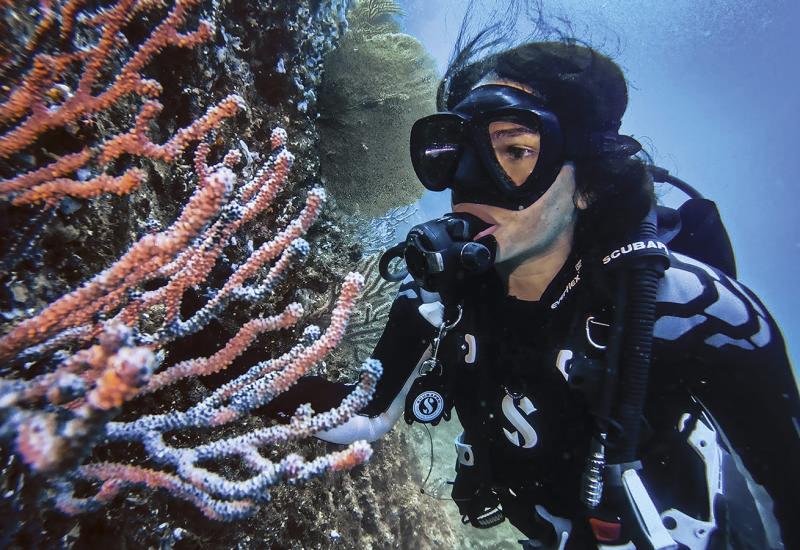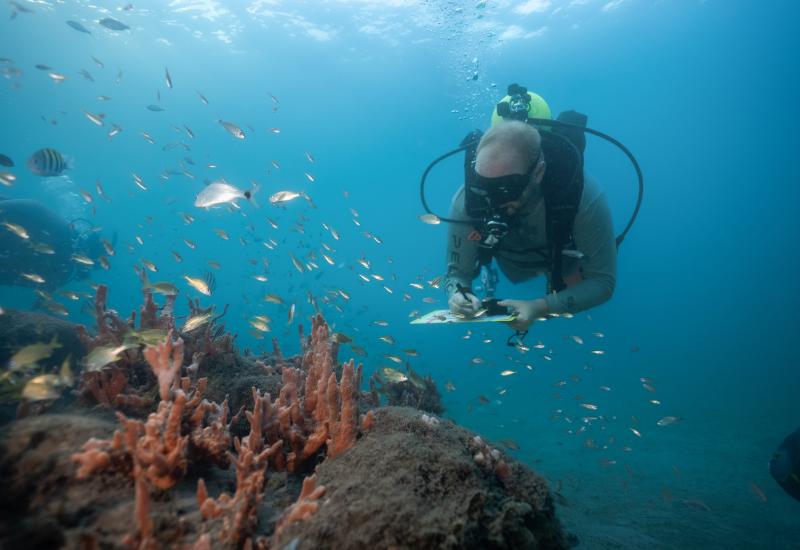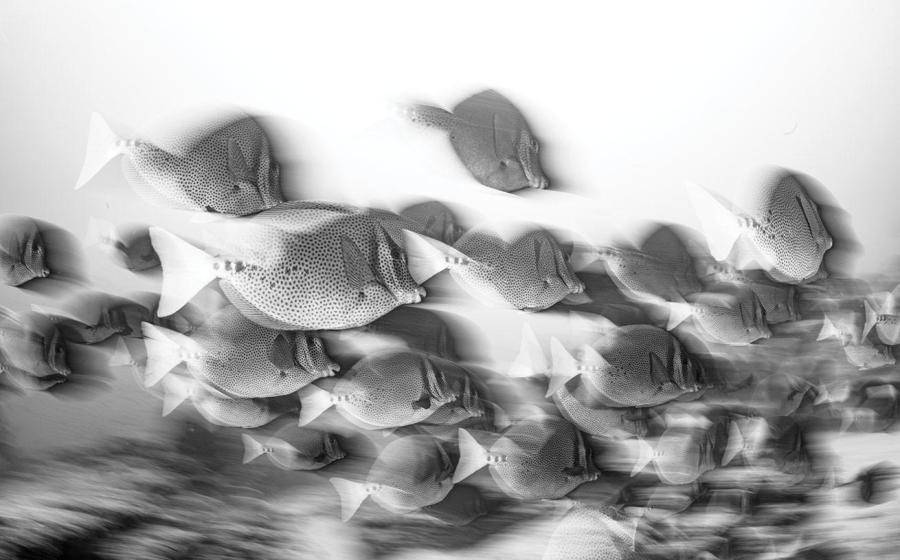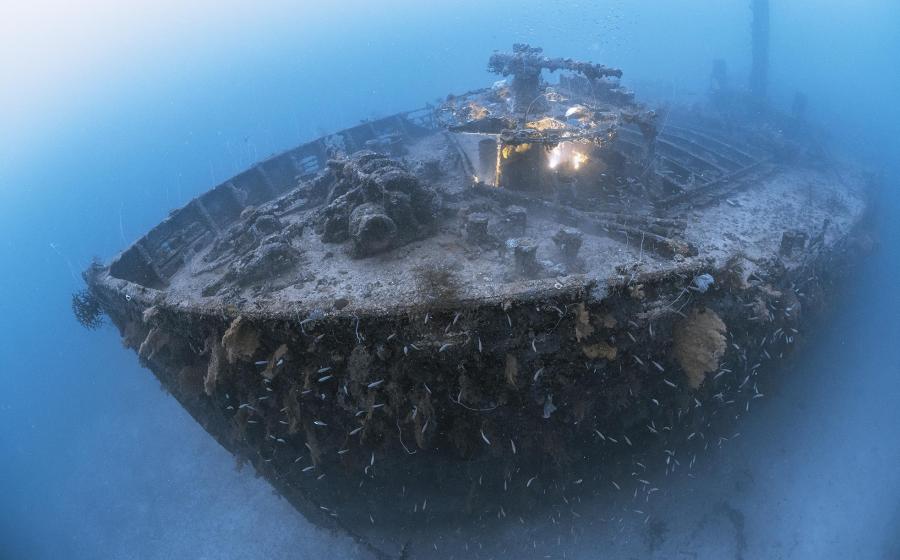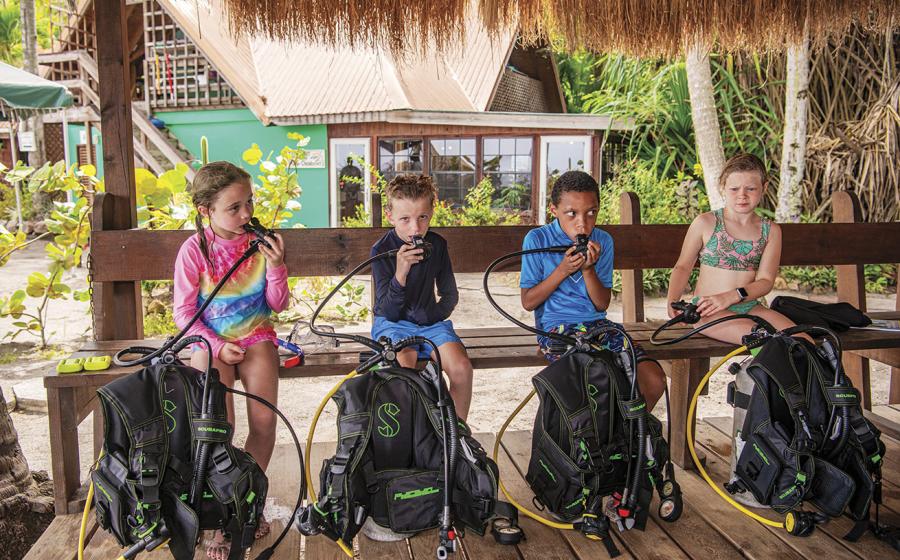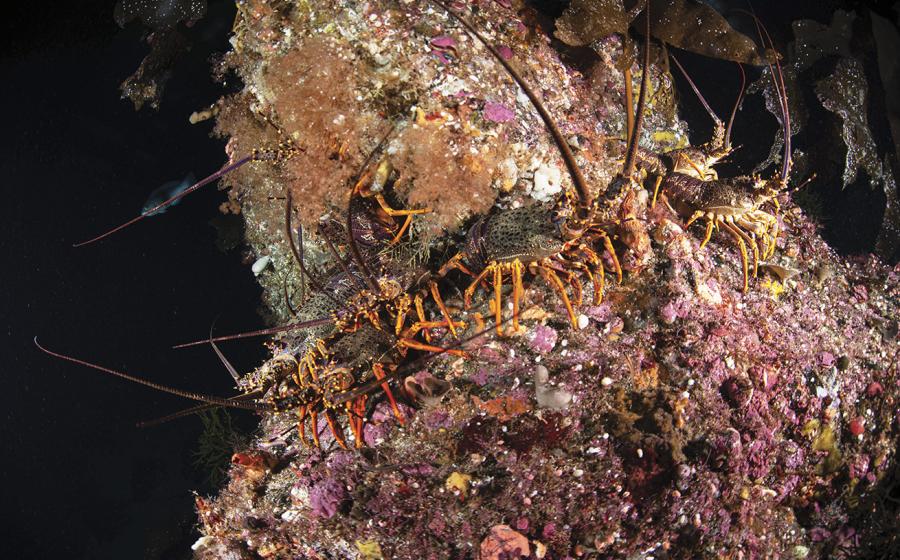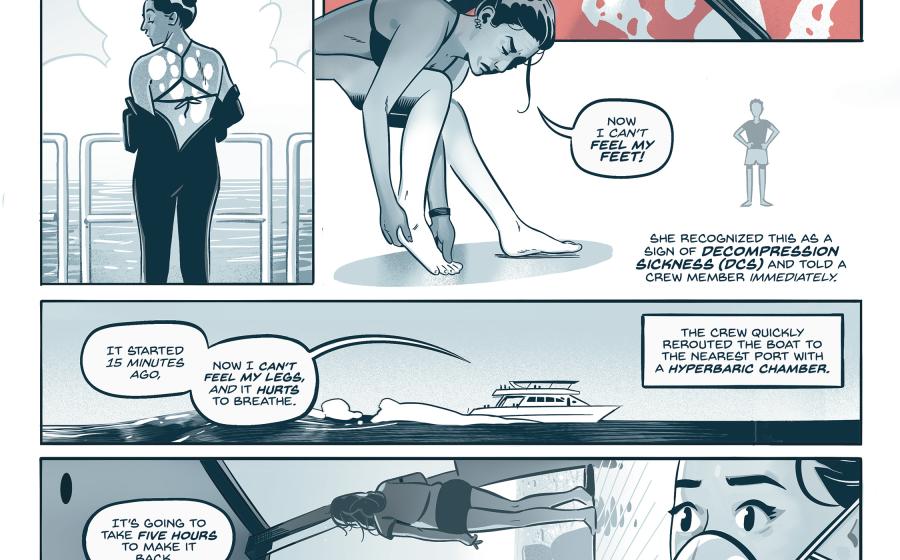Sea Heroes: Shawn Heinrichs
Scuba diver, cinematographer and tireless marine conservationist, Shawn Heinrichs is using multimedia to protect Earth’s oceans one reef (and one shark) at a time
As the founder of Blue Sphere Media (www.bluespheremedia.com), Shawn Heinrichs has gone undercover to expose stories in some of the most remote locations in the world, providing rare glimpses of the people and more disturbing elements of the endangered-species trade. A passionate conservationist with a talent for telling tales with his camera, his footage and images have been used in documentaries and campaigns that have reached hundreds of millions of people. Shawn works closely with organizations like Shark Savers, WildAid and the Pew Environment Group to fight shark finning worldwide, and in collaboration with the Nature Conservancy and Conservation International has helped develop a framework and best practices for establishing marine-conservation areas.
Scuba Diving: Was there a defining moment when you committed your life to marine conservation?****
SH: When I witnessed shark finning firsthand. I swam down on a reef in Raja Ampat and filmed the faces and fresh wounds of finned juvenile reef sharks, strewn across one of the world’s most beautiful reefs. Something changed in me, and I knew I needed to use my media to help the world understand the significance of what I’d just witnessed.
SD: Is the establishment of a shark sanctuary in Raja Ampat the start of a new paradigm in shark conservation?
SH: I believe so. Indonesia is the biggest shark fishing nation in the world. If we can establish a shark sanctuary there, we can do it anywhere, and we can win the battle to conserve sharks.
SD: What’s the next battleground issue concerning our oceans?
SH: I believe the truth we all must face is that we are consuming far more than the ocean can sustain. We must significantly scale back our fisheries and move to a system whereby fishermen can earn a living on higher-value, lower-volume sustainable catches. Currently it’s a free-for-all, and if we don’t move fast, scientists predict all the world’s commercial fisheries will be gone by 2048.
SD: What's your greatest achievement?
SH: I am most proud of the relationships I have developed in conservation. I have plugged into a network of incredibly talented, passionate and focused individuals who are making a real difference in ocean conservation. I could not have accomplished anything without the support of these great people.
SD: What's your biggest regret?
SH: My biggest regret is that I didn't open my eyes sooner to the grave state of the oceans. I feel like I am constantly racing to make up lost time in protecting vulnerable species and threatened marine areas.
SD: Whose film style do you emulate?
SH: When it comes to underwater film work, who cannot aspire to reach the bar that Howard Hall has set for us all. And of course, BBC and the voice of David Attenborough are the inspiration for all of my natural history filmmaking,
SD: Who is/are your Sea Heroes?
SH: My Sea Heros include ** Andy Miners** (Founder of Misool Eco Resort) for proving that one person can make a HUGE impact in the face of insurmountable odds.
Peter Knights (Executive Director of WildAid) Peter is at the forefront of shark conservation for over a decade, an inspiration since I first began to work on sharks.
Matt Rand (Director of the Pew Shark Team) selfless and tireless, Matt and his team are reshaping global shark conservation and succeeding.
Michael Skoletsky (Executive Director of Shark Savers) Michael and the Shark Savers team have empowered the common person to make a difference for sharks.
All of the unsung Sea Heros who battle every day and sacrifice so much to protect our oceans, without any recognition or praise.
SD: What would you do with the $5,000 award?
SH: If I were to receive the $5,000 award, I would use it to support the community-based patrols in Misool protected areas in Raja Ampat. In this remote area, this money can accomplish an incredible amount of conservation.
To read the rest of Shawn's Sea Hero profile, check out the May 2011 issue of Scuba Diving.

Berkley White
Scuba diver, cinematographer and tireless marine conservationist, Shawn Heinrichs is using multimedia to protect Earth’s oceans one reef (and one shark) at a time
As the founder of Blue Sphere Media (www.bluespheremedia.com), Shawn Heinrichs has gone undercover to expose stories in some of the most remote locations in the world, providing rare glimpses of the people and more disturbing elements of the endangered-species trade. A passionate conservationist with a talent for telling tales with his camera, his footage and images have been used in documentaries and campaigns that have reached hundreds of millions of people. Shawn works closely with organizations like Shark Savers, WildAid and the Pew Environment Group to fight shark finning worldwide, and in collaboration with the Nature Conservancy and Conservation International has helped develop a framework and best practices for establishing marine-conservation areas.
Scuba Diving: Was there a defining moment when you committed your life to marine conservation?****
SH: When I witnessed shark finning firsthand. I swam down on a reef in Raja Ampat and filmed the faces and fresh wounds of finned juvenile reef sharks, strewn across one of the world’s most beautiful reefs. Something changed in me, and I knew I needed to use my media to help the world understand the significance of what I’d just witnessed.

Bob McNerney
SD: Is the establishment of a shark sanctuary in Raja Ampat the start of a new paradigm in shark conservation?
SH: I believe so. Indonesia is the biggest shark fishing nation in the world. If we can establish a shark sanctuary there, we can do it anywhere, and we can win the battle to conserve sharks.
SD: What’s the next battleground issue concerning our oceans?
SH: I believe the truth we all must face is that we are consuming far more than the ocean can sustain. We must significantly scale back our fisheries and move to a system whereby fishermen can earn a living on higher-value, lower-volume sustainable catches. Currently it’s a free-for-all, and if we don’t move fast, scientists predict all the world’s commercial fisheries will be gone by 2048.
SD: What's your greatest achievement?
SH: I am most proud of the relationships I have developed in conservation. I have plugged into a network of incredibly talented, passionate and focused individuals who are making a real difference in ocean conservation. I could not have accomplished anything without the support of these great people.
SD: What's your biggest regret?
SH: My biggest regret is that I didn't open my eyes sooner to the grave state of the oceans. I feel like I am constantly racing to make up lost time in protecting vulnerable species and threatened marine areas.
SD: Whose film style do you emulate?
SH: When it comes to underwater film work, who cannot aspire to reach the bar that Howard Hall has set for us all. And of course, BBC and the voice of David Attenborough are the inspiration for all of my natural history filmmaking,

Christine Ward-Paige
SD: Who is/are your Sea Heroes?
SH: My Sea Heros include ** Andy Miners** (Founder of Misool Eco Resort) for proving that one person can make a HUGE impact in the face of insurmountable odds.
Peter Knights (Executive Director of WildAid) Peter is at the forefront of shark conservation for over a decade, an inspiration since I first began to work on sharks.
Matt Rand (Director of the Pew Shark Team) selfless and tireless, Matt and his team are reshaping global shark conservation and succeeding.
Michael Skoletsky (Executive Director of Shark Savers) Michael and the Shark Savers team have empowered the common person to make a difference for sharks.
All of the unsung Sea Heros who battle every day and sacrifice so much to protect our oceans, without any recognition or praise.

Taro Smith
SD: What would you do with the $5,000 award?
SH: If I were to receive the $5,000 award, I would use it to support the community-based patrols in Misool protected areas in Raja Ampat. In this remote area, this money can accomplish an incredible amount of conservation.
To read the rest of Shawn's Sea Hero profile, check out the May 2011 issue of Scuba Diving.

